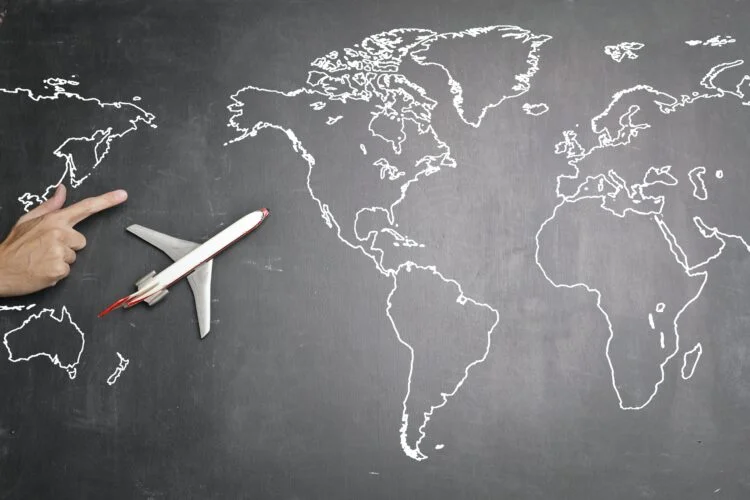In a significant development for air travelers, the European Union (EU) has enacted Regulation 261/2004, aimed at safeguarding passenger rights for individuals flying to or from EU destinations with European airlines. While the regulation previously addressed missed connection claims for flights originating within the EU, an essential question remained: what happens if your itinerary includes a layover outside of Europe, and your connecting flight suffers delays or cancellations due to technical glitches or staff shortages? Now, a long-awaited ruling offers clarity.
Compensation for connecting flights outside EU
Consider this scenario: you embark on a journey from Amsterdam to Singapore with a layover in Dubai. If your Dubai to Singapore flight gets canceled due to a technical fault, until recently, you would not have been eligible for compensation since the flight fell outside the EU and was not covered by Regulation 261/2004. But imagine if your layover had been in London instead of Dubai – under those circumstances, you would have been entitled to compensation.
Recognizing the inequity in such situations, the European Court of Justice (ECOJ) has intervened. The ECOJ recently decreed that flights booked as part of a single journey should be treated as such, rendering Regulation 261/2004 applicable to both segments.
This new ruling brings about an important expansion in passenger compensation rights. What does it mean for you, the traveler? As long as your flights are booked together, regardless of the location of your layover, your passenger rights will be protected, provided you depart from an EU airport. The existing compensation rules remain in effect, necessitating a delay of three hours or more upon arrival, with the exclusion of delays caused by extraordinary circumstances. If you are traveling from a non-EU location to an EU destination, compensation is only applicable if the flight is operated by a European airline.
For instance, let’s suppose you experience an 8-hour delay on your journey from Singapore to Sydney due to a tropical storm. If this disruption is part of your trip originating in London, you would not be eligible for compensation as the delay is attributed to an extraordinary circumstance. However, were it not for such a circumstance, the new ruling would entitle you to a compensation amount of €600.
Precautions to take in order to be compensated
To ensure you maximize your passenger rights when embarking on international flights outside the EU, there are several precautions you can take:
Firstly, it is advisable to book your flights together as a single itinerary. Opting for separate bookings should be avoided, as airlines coordinating connecting flights ensure that you make your connection in a timely manner.
Secondly, consider selecting an itinerary with ample transfer time. By allowing a buffer for minor delays, you can significantly reduce the risk of missing your connecting flight.
Lastly, when returning from a non-EU destination, if possible, opt for a European carrier. European airlines are still bound by European legislation, providing an added layer of protection for passengers.
Being informed about these rights and taking proactive measures will empower you to assert your passenger rights when traveling beyond the EU. With the new regulations in place, the EU is determined to make air travel a more seamless and fair experience for passengers worldwide.
The recent decision by the European Court of Justice (ECOJ) to extend the coverage of Regulation 261/2004 to include connecting flights outside of the EU is expected to have a significant impact on claim agencies specializing in passenger compensation.
Help from claim companies
Claim companies, which assist passengers in filing compensation claims for flight delays, cancellations, or other travel disruptions, are likely to see an increase in their business as a result of this ruling. The expanded coverage means that more passengers will now be eligible for compensation if their connecting flights outside of Europe are delayed or canceled.
Previously, claim companies primarily focused on assisting passengers with claims for flights departing from or arriving in the EU. However, with the new ruling, they can now extend their services to cover a broader range of international itineraries involving layovers outside the EU. This expansion presents a significant opportunity for claim agencies to attract new clients and expand their customer base.
As more passengers become aware of their rights and the availability of compensation for connecting flights, claim companies can expect an uptick in inquiries and claims. Passengers who may have previously been unaware of their eligibility for compensation will now seek assistance from these agencies to navigate the claims process and secure the compensation they are entitled to.
Overall, the ECOJ’s decision is expected to create a favorable business environment for claim companies such as Skycop or Airhelp, presenting them with new opportunities for growth and expansion. However, it is important to note that the impact may vary depending on the region and the reach of the claim agencies, as the ruling specifically pertains to flights involving EU airports. Claim companies operating primarily outside of the EU may experience a more limited effect.
 English
English
 Lietuviškai
Lietuviškai